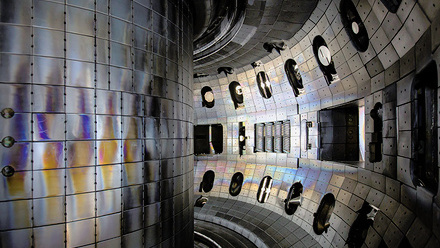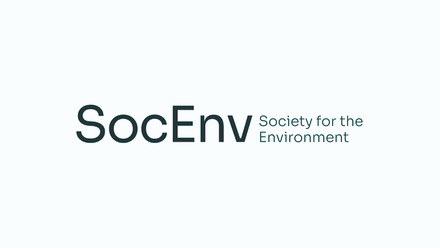The fantastic four transforming industry
Four UK Research and innovation programmes seek to transform industry.

Industries worldwide are undergoing a fundamental shift towards sustainability, driven by the urgent need for decarbonisation, circular economy principles and technological innovation.
Over the past five years, key programmes have been funded by UK Research and Innovation, including through the Industrial Decarbonisation Challenge and the Transforming Foundation Industries Challenge, both delivered as part of the Industrial Strategy Challenge Fund.
These have resulted in leading research and innovation initiatives at the forefront of this transformation – the Industrial Decarbonisation Research and Innovation Centre (IDRIC), the National Interdisciplinary Circular Economy Research Programme (NICER), the Transforming Foundation Industries Network+ (TFIN+), and Glass Futures (see box-out at the end of the article).
Individually, each has pioneered solutions that address environmental challenges and also enhance industrial competitiveness. Despite their distinct focuses, these initiatives share five golden threads that unite their impact and jointly pave the way for a sustainable industrial future.
These threads are a focus on sustainability and decarbonisation, innovation, industry collaboration and skills development, and considering the implications for policy.
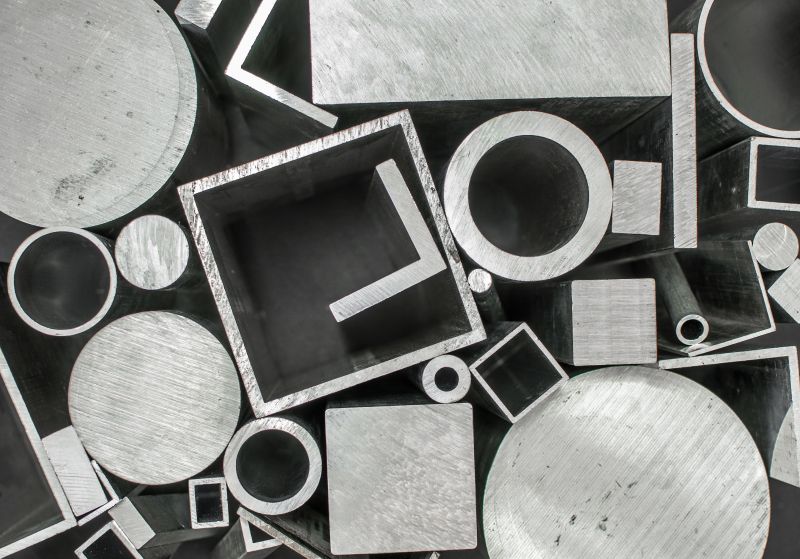
Sustainability and decarbonisation
A primary goal is the reduction of industrial greenhouse gas emissions and environmental impact.
Glass Futures has led research into alternative fuels, electrification and hydrogen energy, demonstrating scalable solutions to lower the environmental footprint of glass production. Additionally, advancements in carbon capture technology and waste-heat recovery systems have been integrated to further enhance sustainability.
The programme has actively promoted circular economy principles by increasing the use of cullet (recycled glass) in production. Research has focused on improving collection systems, refining sorting technologies and optimising recycling methods to enhance the quality and usability of recycled glass. This has reduced reliance on virgin raw materials and decreased overall energy consumption.
Meanwhile, the TFIN+ has supported the UK’s Foundation Industries (FIs) in adopting more energy-efficient and low-carbon processes. The glass, metals, cement, ceramics, chemicals and paper industries collectively contribute over £50bln annually to the UK economy and produce more than 25Mt of materials per year.
One example of supporting these sectors is in redirecting paper sludge – a paper recycling by-product – from incineration to anaerobic digestion, producing biogas for combined heat and power applications. Another is using high-temperature steel slag and high-silica wastes to reduce the energy needed for mineral wool production, saving 3.65kg of coke per tonne of wool and cutting CO₂ emissions by 50.04kg/t.
Through its efforts, TFIN+ has generated new concepts and adaptations of existing knowledge, supporting a more competitive and sustainable future for key UK industries.
Similarly, the NICER and its Circular Economy Research Hub (CE-Hub) have championed circular economy models that minimise waste and promote material reuse, reducing the demand for virgin resources.
One particular model looked at electro-pulse treatment (EPT) for metal recovery. The EPT technology was developed by the CE-Hub’s Circular Metals Centre to rejuvenate and recover fatigued metallic components, extending the lifespan of steel parts used in construction and manufacturing. This doubled the fatigue life of steel in low-cycle conditions and triples it in high-cycle conditions, significantly reducing metal waste and the need for new material extraction.
Furthermore, decarbonising major industrial clusters is critical to achieving the UK government’s net-zero emissions targets, as around half of industrial emissions come from these clusters. The IDRIC has been instrumental in supporting the UK’s six largest industrial clusters to transition at scale, enhancing industry competitiveness and fostering collaboration.
Spread across the UK, in Scotland, the North West, Tees Valley, Solent, Black Country, Humber and South Wales, these initiatives are laying the groundwork for a more sustainable, resource-efficient industrial landscape.
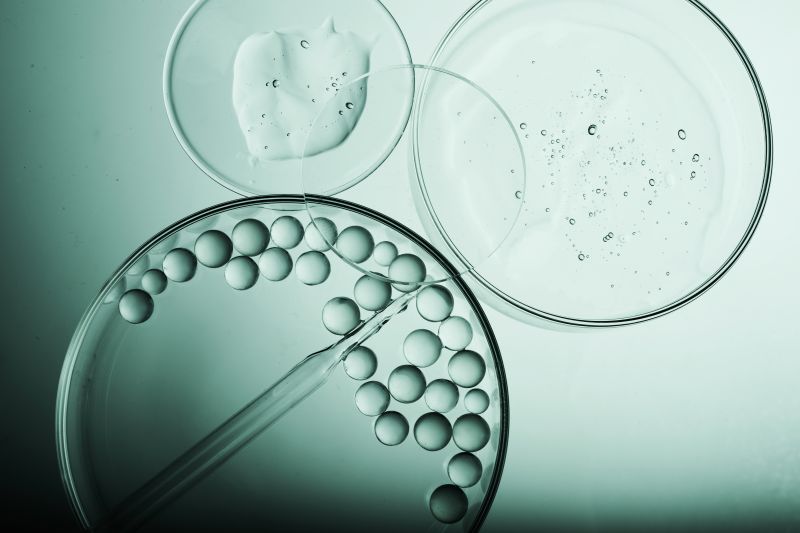
Innovation and technological advancement
Innovation is at the heart of each initiative, driving forward new processes, technologies and business models.
Already, Glass Futures has worked with its partners to develop furnace designs and process optimisations that improve energy efficiency and reduce raw material consumption.
Industrial trials involving the UK’s largest glass and ceramics manufacturers, conducted at the end of 2024 and the start of 2025, used liquid biofuels.
Through the pilot facilities at St Helen’s, Liverpool City Region, Glass Futures is also demonstrating advanced digital technologies, including artificial intelligence and real-time monitoring, which have been leveraged by members to streamline production and improve quality control, ensuring a more efficient and cost-effective manufacturing process.
IDRIC’s research has de-risked and scaled up solutions for industrial decarbonisation. It has led an interdisciplinary portfolio of 100 challenge-driven research projects, co-designed and co-delivered with industry.
Its research spans diverse areas, including green chemical production, waste-heat use, microbial conversion of sewage, carbon dioxide and hydrogen storage tracking, and carbon transport. These efforts have resulted in a variety of innovative tools, prototypes, processes and models.
While TFIN+ disbursed £1.4mln to support 34 short-term, proof-of-concept projects across five thematic calls, addressing key industry challenges. These projects were awarded to researchers from 16 universities and attracted an additional £434k in in-kind support from 36 partner companies, validating their commercial and industrial relevance.
Projects have since secured an additional £4.2mln in public and private funding, with several demonstrating tangible impacts on partner companies and researchers.
Dr Cristina Valles AIMMM of the University of Manchester, for example, used her funding to develop an alternative to coal tar pitch. Morgan Advanced Materials was sufficiently impressed with the results that they contributed towards a £116k project to further develop these results.
NICER’s CE-Hub launched the first Circular Economy Data Observatory, a repository integrating UK material flow and impact data to inform industrial decision-making and policy. Additionally, its Circular Economy Knowledge Hub has consolidated research, case studies and tools to enhance understanding and adoption of circular practices across sectors.
The CE-Hub has also driven circular value chain development in critical sectors such as healthcare, solar photovoltaics, digital technology and hospitality. Notably, its work in healthcare led to significant contributions to the Department for Health and Social Care’s Design for Life Roadmap, and secured £1.8mln in funding for further research into digitally enabled, circular, healthcare innovation.
By leveraging cutting-edge research, these programmes are accelerating the adoption of transformative technologies across multiple sectors.
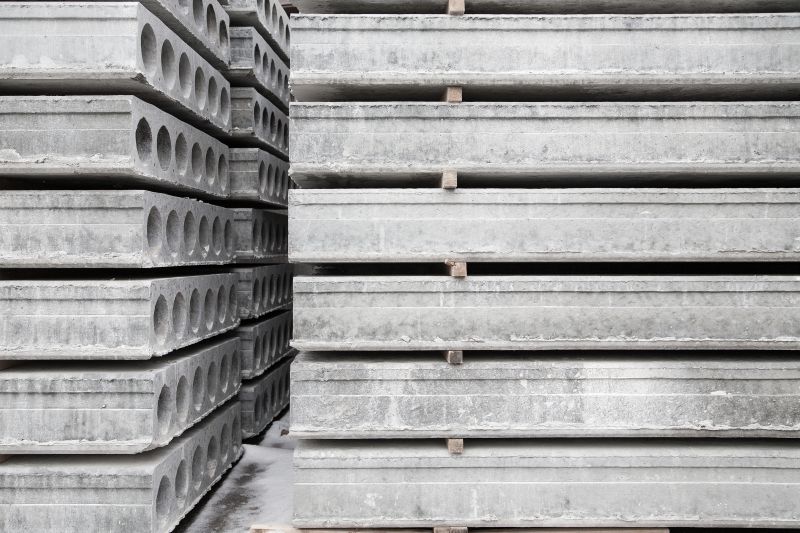
Industry collaboration and knowledge exchange
Collaboration between industry, academia and government has been instrumental in driving progress across all programmes.
Glass Futures has built a network encompassing glass manufacturers, suppliers, policymakers and research institutions. Through workshops, conferences, and knowledge-exchange platforms, they have facilitated industry-wide learning and the dissemination of best practices. This approach has accelerated the adoption of sustainable technologies across the sector.
Collaboration has also been a cornerstone of IDRIC’s success. Partnering with more than 40 research institutions and building a wider network that includes over 700 industry, government and trade bodies, plus other research institutions, IDRIC has established a trusted network for knowledge exchange. Its online knowledge hub has facilitated information sharing among industry and policymakers, ensuring that research insights effectively inform decision-making.
TFIN+ organised or collaborated on 42 events, engaging over 4,000 participants across different career levels. These gatherings fostered industry dialogue, encouraged knowledge sharing, and strengthened the sense of identity and trust within the FIs.
Internationally, NICER’s CE-Hub has established itself as a leader in circular economy research, acting as the UK focal point for the UN’s Economic Commission for Europe’s Circular Step initiative and co-founding the world’s first UN-Supported Centre of Excellence for Circular Economy Research. These efforts support sustainable resource use, carbon reduction and economic growth.
These networks have not only enhanced research impact but have also fostered a culture of shared responsibility and knowledge exchange.
Skills development and workforce transformation
The transition to sustainable industries requires a highly skilled workforce. Recognising this, each initiative has prioritised education and training.
Glass Futures has implemented training programmes designed to equip professionals with expertise in sustainable glass manufacturing. By working with academic institutions and industry leaders, they are already delivering high-quality training across their membership, ensuring current glassmakers are well prepared for the evolving industry landscape and the next generation is on the trajectory to adopt highly paid and skilled jobs.
IDRIC has mapped the skills and job roles necessary for industrial decarbonisation, identifying opportunities to enhance workforce capacity and improve equity, diversity and inclusion (EDI). Its policy advocacy efforts have fostered cross-sector dialogue, providing critical evidence to policymakers and driving momentum for policy action.
TFIN+ engaged in initiatives to develop a skilled and diverse workforce for the FIs. It partnered with the Engineering Development Trust to introduce school pupils to sustainability, innovation and manufacturing. A six-month pilot project with three businesses facilitated an inclusive, co-designed approach to EDI, promoting cultural change within industries through participatory methodologies.
Since its launch, TFIN+ has successfully fostered collaboration between traditionally separate industrial sectors. It has enabled greater knowledge exchange, embedded innovative solutions within companies, and created a flexible, agile forum for dialogue between researchers and industries.
By investing in skills development, these initiatives are building a workforce capable of driving long-term sustainability.
Policy and economic impact
Influencing policy and shaping regulatory frameworks are critical to achieving lasting change.
IDRIC has provided impartial evidence to policymakers, advocating for policies that accelerate industrial decarbonisation.
CE-Hub has provided data-driven insights that inform government policies on resource efficiency, while NICER has contributed to the development of circular economy strategies at national and international levels.
TFIN+ has helped industries navigate evolving environmental regulations, and Glass Futures has worked closely with policymakers to advocate for sustainable manufacturing incentives.
Collectively, these initiatives are ensuring that industrial transformation is supported by robust, forward-thinking policies that balance economic growth with environmental responsibility.
A springboard
The NICER Programme, CE-Hub, TFIN+, IDRIC and Glass Futures have demonstrated that sustainability, innovation, collaboration, skills development and policy engagement are not isolated efforts but interconnected pillars of industrial transformation.
Their shared golden threads highlight the importance of a holistic approach to achieving net-zero goals and building a resilient, competitive and environmentally responsible industrial future.
There remains a large amount to do in scaling and deploying technologies, and researchers from across the centres and initiatives continue to convene, share best practice and develop future programme ideas.
With the upcoming publication of the UK’s Industrial Strategy, their collective impact will lay the groundwork for its delivery and serve as a blueprint for sustainable industrialisation, both in the UK and globally.
Four-tifying decarbonisation
What is Glass Futures?
Glass Futures is a research and innovation centre of excellence dedicated to revolutionising the materials production industries by promoting sustainability, efficiency and cutting-edge technology, addressing the challenges of embracing decarbonisation, energy efficiency and circular economy principles within the sectors. It was conceptualised in 2020 with funding from Innovate UK, as part of the Transforming Foundations Industries Challenge, and Liverpool City Region Combined Authority.
The £75mln innovation centre in St Helens, Liverpool City Region, is playing a key role in accelerating advances that bring together industry leaders, academic institutions and policymakers to shape the future of manufacturing.
What is the Industrial Decarbonisation Research and Innovation Centre (IDRIC)?
The centre in Edinburgh has played a crucial role over the past four years in accelerating industrial decarbonisation, an essential component in the UK’s transition to net-zero. By integrating engineering, environmental, economic, behavioural and policy perspectives, IDRIC has facilitated the development and implementation of low-carbon technologies and infrastructure, de-risking solutions for industry and driving innovation.Having developed an influential and impactful network at a critical time, IDRIC has successfully embedded research outputs in industry and among end-users to accelerate the implementation of solutions across a wide range of sectors.
What is the National Interdisciplinary Circular Economy Research Programme (NICER)?
The £30mln initiative is designed to establish a robust research, innovation and evidence base for the UK’s transition to a circular economy across industries, policymakers and society.Comprising 34 universities and 150 industrial partners, NICER consists of five specialised Circular Economy Research Centres and the coordinating CE-Hub. These centres focus on textiles, mineral-based construction materials, chemicals, metals and technology metals, collaborating with industry and government to ensure real-world impact and policy integration.
Over four years, the initiative has delivered innovations, case studies and data-driven insights to support sustainable economic transformation.
The CE-Hub, based at the University of Exeter, has served as the central coordination body, scaling up research capabilities. It operates across four work packages:
The CE Data Observatory – a systemic data and modelling platform
The CE Knowledge Hub – an interdisciplinary resource for policymakers and businesses
Innovation and impact – facilitating cross-sector collaboration
Inclusive and capable CE community – building a skilled workforce and inclusive research community
What is the Transforming Foundation Industries Network (TFIN+)?
This network was established to unite and revitalise the academic landscape in support of the UK’s Foundation Industries. Over four years, it has built a community of 740 participants from universities, research organisations and businesses engaged in multi-industry research. TFIN+ addressed industry challenges such as environmental regulations, global competition, supply chain disruptions, energy costs and workforce ageing.
This article is written by Dr Sarah Harrold FIMMM, Head of Strategy and Government Engagement at Glass Futures; Professor Ian Reaney FIMMM, Professor and Dyson Chair in Ceramics, University of Sheffield; Professor Mercedes Maroto-Valer, Director – UK Industrial Decarbonisation Research and Innovation Centre, Heriot-Watt University; and Professor Fiona Charnley, Professor of Circular Innovation and Co-Director of the Exeter Centre for Circular Economy, University of Exeter.



